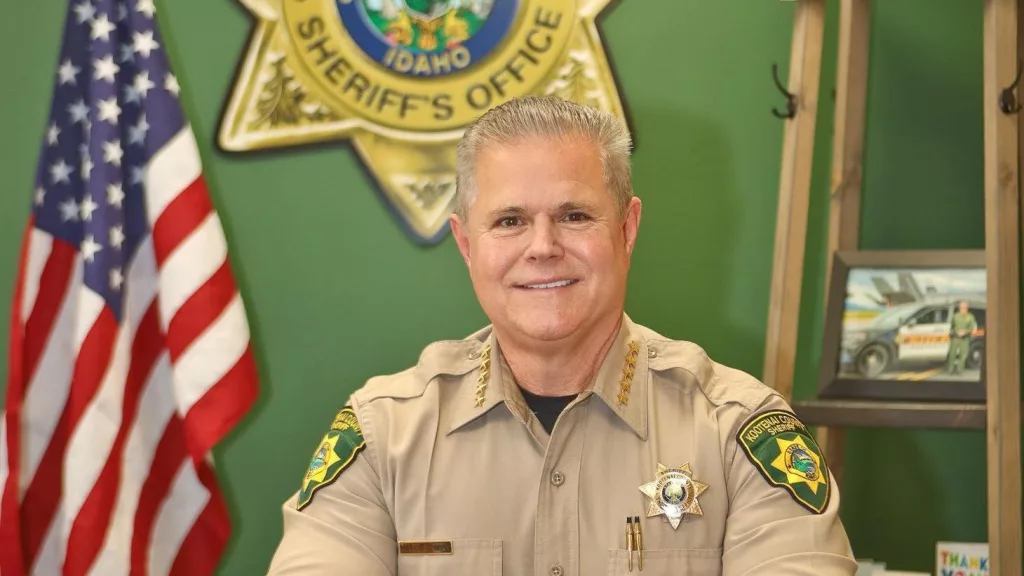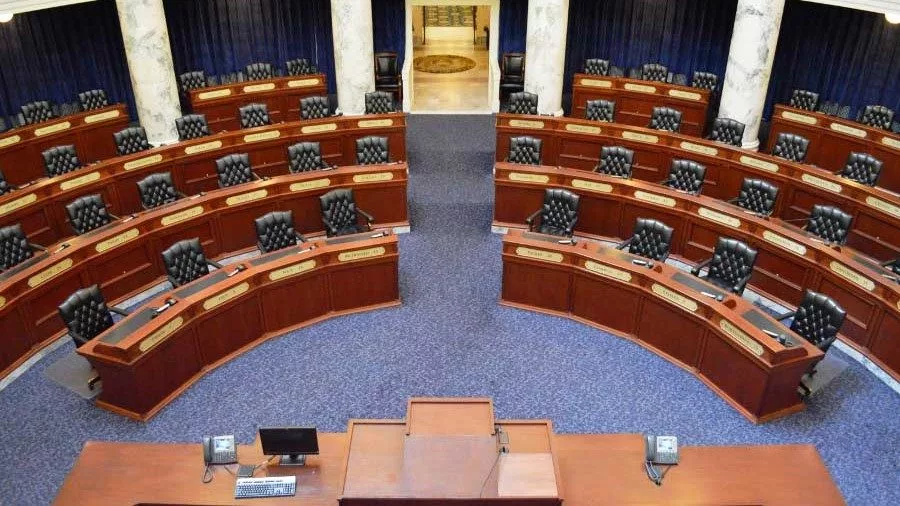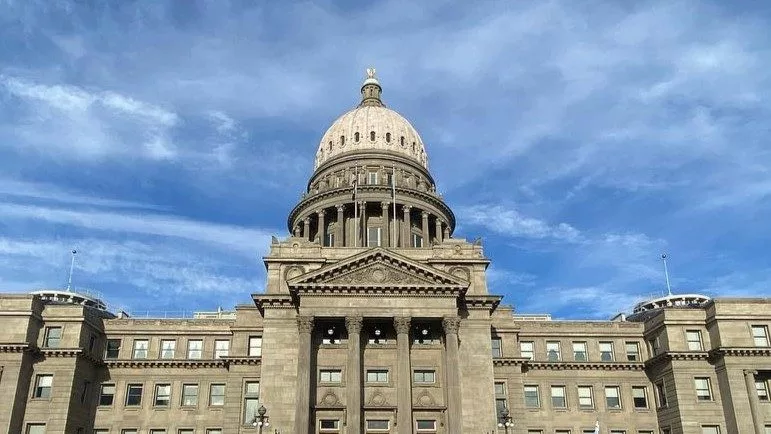Cooperation with federal authorities tests bounds of law and policy, stirs fear in immigrant communities
COEUR D’ALENE, ID – In late January, federal immigration officials got a lead on three people in Idaho they thought, based on information shared by Kootenai County Deputy Harvey Ballman, “may be illegal.”
Not only that, but Ballman was “more than willing to send us more information in the future,” wrote one Border Patrol agent in an email, passing along the addresses from Ballman of the three targets of immigration enforcement weeks into President Donald Trump’s second term.
Two of the three people were ordered to be deported, according to Matt Phelps with the Border Patrol’s Targeting and Intelligence Division.
None had been actively committing a crime, and it’d been two years since one of the three had been arrested.
“I want to thank you for providing the information,” Phelps wrote to Ballman. “If you or any of your LEO partners have information on individuals you have encountered or encounter in the future that you suspect may be illegally present in the US, feel free to send me that information and I will research them to determine if they are valid targets for enforcement.”
Ballman responded: “good to hear. I’ll pass on your info to the rest of our patrol division. We have lots of work for you guys.”
The emails, among a trove obtained by InvestigateWest in a public records request, provide a window into the level of coordination between federal immigration authorities and the Kootenai County Sheriff’s Office in North Idaho. As the federal push to deport undocumented immigrants proceeds — and as state and local agencies take different paths on how, or whether, to assist — Kootenai County has been particularly willing to join in the deportation effort.
Sheriff Bob Norris, who represents one of the more conservative counties in a state where two-thirds of voters cast ballots for Trump, has announced that he would use all of his department’s resources to help with deportations. The county jail has taken in 72 people on immigration holds, including many arrested by the Border Patrol in neighboring Washington, where state law prohibits using jails for immigration offenses.
Since taking office, Trump has encouraged local and state law enforcement agencies to collaborate with federal immigration agents to help with deportation efforts, and several states now have agreements with Immigration and Customs Enforcement to assist in immigration enforcement. Norris has been eager to help, regardless of whether an undocumented person has committed a state crime.
The U.S. Supreme Court has ruled that immigration enforcement is the sole duty of the federal government and local police may assist under federal direction. Immigration lawyers and immigrant advocates warn that close collaboration between local police and federal immigration agents could undermine the main goal of state and local law enforcement, which is to deter and solve crimes.
“If somebody is undocumented and they’ve experienced a very serious crime, or seen a very serious crime, they may not be willing to come forward about that if the reality is that they would be then reported to ICE for immigration enforcement,” said Geoffrey Heeren, law professor and director of the Immigration Litigation and Appellate Clinic at the University of Idaho.
When asked if the fear of deportation could deter victims and witnesses of crimes from reporting them and impede law enforcement, Kootenai County Lt. Jeff Howard said “it can” and didn’t elaborate.
“We’re not going to hide people who are accused of a crime one way or another,” Howard told InvestigateWest.
The “crime” he referred to was being present in the U.S. without authorization, a federal civil offense not typically enforced by local authorities.
“If you’re in the country illegally,” Howard said, “we’re going to notify Border Patrol.”
‘Idaho encourages cooperation’
InvestigateWest reviewed a month of emails between Kootenai County deputies and federal immigration agents to understand how communication and immigration enforcement may have changed since the election. There were 393 emails between the two agencies from Jan. 1, 2025, to Feb. 4, 2025, that show a close level of coordination between the two agencies.
In one message, Border Patrol agents asked deputies about a man from Zimbabwe with an Idaho driver’s license in the jail. In another, a Border Patrol agent offered deputies “informal training” to look for signs of “the presence of criminal aliens” and to “provide real time feedback and record checks for possible … suspects without having to go through a lengthy process from another federal agency.”
Edward Dean, a spokesperson for the U.S. Border Patrol’s Spokane Sector, first told InvestigateWest that the agency doesn’t typically do informal or formal training with law enforcement. After he was shown the email, he shifted his stance and said the Spokane Sector “encourages” ad hoc, informal training and intelligence sharing in ride-alongs and informal meetings.
“Not surprised this is happening,” Alycia Moss, a Coeur d’Alene immigration attorney, said in an email after reviewing some of the correspondence. “Idaho is a state that encourages cooperation with ICE and (Border Patrol) and likely will continue to.”
The emails mostly include Border Patrol agents notifying the Kootenai County jail when they’ve arrested someone and planned to place them in the jail with an immigration hold.
Border Patrol agents have placed 72 immigration holds on individuals in the jail since the beginning of the year. This is an increase since before Trump took office, Moss said.
“Once Trump became president, there was a significant uptick in Border Patrol holds in the Kootenai County jail,” Moss said. “So before, you’d see maybe a couple, and now you’re seeing more like a couple handfuls.”
Norris has focused heavily on immigration since he became Kootenai County sheriff in 2020, after retiring from the Los Angeles Police Department. In public statements, he has associated Spanish–speakers with being “illegal,” said deputies would assist in deporting any noncitizens who are in the country illegally even without criminal backgrounds and suggested they all “self-deport.”
“Criminals and illegal aliens be aware Kootenai County is a Sanctuary County for all Law-Abiding citizens of the United States who are here legally,” Norris said in a news release in February.
In the same statement, he said deputies and Border Patrol agents would be working “in tandem” and “in the same vehicle at times.”
Norris also made headlines in 2023 for removing library books from a public library and refusing to return them because he thought they were “disturbing.” Most recently, he threatened to arrest a woman who was protesting inside a legislative town hall and stood by while private security dragged her out of the venue.
The sheriff’s stance on immigrants has trickled down to his deputies, the emails show. A deputy also reached out to ICE to ask about participating in the federal 287(g) program, which is a program with ICE where local police can engage in some immigration enforcement.
“We already cooperate with you by housing inmates, but want to become a more involved partner,” wrote Kootenai County sheriff’s Capt. Jeremy Hyle.
Kootenai County doesn’t have any formal agreements with ICE or Border Patrol, but the sheriff’s office follows the informal guidance of the National Sheriffs’ Association. In an email to sheriffs across the country, obtained by InvestigateWest, the association wrote at the end of February that ICE had logged around 700,000 civil arrest warrants for illegal entry.
“As a result, during everyday policing activities, your personnel may encounter someone who has an ICE administrative warrant now entered into this system,” Jonathan Thompson, executive director of the National Sheriffs’ Association, wrote in the email.
He explained in the email that agencies without a 287(g) agreement could not arrest people on the ICE warrants themselves, but said they can detain them if they are arrested on suspicion of a state crime. If no crime is suspected, Thompson wrote that police should contact ICE and request that federal agents come arrest the person. If ICE agents can’t make it, he wrote, “your only real option is to collect as much information from the person as you can and release the person and ICE will have to try to find them through their fugitive operations.”
Just three Idaho counties have 287(g) agreements with ICE: Gooding, Power and Owyhee counties. Only Owyhee County has an agreement under the task force model where officers can perform immigration enforcement.
The Trump administration in January issued an executive order to encourage widespread 287(g) agreements between local law enforcement and ICE. In Florida, Gov. Ron DeSantis ordered all law enforcement agencies to enter the agreements.
Idaho Gov. Brad Little issued an executive order in February that ordered all law enforcement agencies to consider entering 287(g) agreements with ICE. He also said “to the maximum extent possible permitted by law, state agencies shall continue collaborating with ICE” to focus on deporting undocumented people “with criminal records who pose a threat to public safety.”
In states like Idaho that encourage information sharing with federal immigration agents, it isn’t illegal to share the immigration status of a person if it comes out during investigation of a state crime, but without a 287(g) agreement, it is illegal to serve federal immigration warrants and investigate people’s immigration statuses as local law enforcement.
“Typically, state and local officers are not supposed to be enforcing immigration law, because that’s an exclusively federal arena, with some exceptions, so if they are going out and enforcing immigration law and investigating immigration violations without a formal agreement with the federal government to do so, that would be problematic,” said Heeren, the Idaho law professor.
Howard said typically when deputies are investigating a crime, they will ask for a person’s passport or other citizenship documentation. If deputies find out they are not U.S. citizens, they will contact Border Patrol agents.
“To see if (Border Patrol has) them in their system, and if they do, and it is somebody who crossed the border and they’re not supposed to be there, then they usually come out (and arrest them),” Howard said.
‘Not the worst of the worst’
Ballman did not appear to be investigating a state crime before giving federal officials the names of the three individuals who he thought were in the country illegally. No incident report was taken, records show. Yet legal experts say that by law, there would have had to be suspicion of a state crime having been committed, since the department doesn’t have the authority to carry out immigration enforcement without a 287(g) program.
“Based on the correspondence with the deputy, it appears he saw the potential for the need for Border Patrol to get involved,” Howard said. He said he didn’t know how the individuals were contacted by Ballman and didn’t respond to questions about the legality of turning them over to the Border Patrol.
But if there was no crime being investigated, it is unclear why Ballman suspected the three people were in the country illegally. Two lawyers who reviewed the correspondence with Ballman and federal agents said it could be illegal and at least questionable based on how he came under the suspicion that the individuals were in the country illegally.
Moss said if he knew about the people’s immigration status through a law enforcement investigation, he can share that information with federal agents, but it would be improper to obtain and share their immigration status without an investigation for a state crime.
Heeren agreed. He said police should not be suspecting people or monitoring people based on their perceived national origin. Officers are not allowed to target people for crimes based on their race or ethnicity.
“There are also problems with police officers engaging in warrantless surveillance of people if they don’t have reasonable suspicion or probable cause to believe that a crime has been committed,” Heeren said.
Across the Idaho border with Washington, unauthorized immigrants are protected by state law from being subjected to questions about their immigration statuses by local law enforcement. Washington state law prohibits state and local law officers from enforcing federal immigration law and from sharing non-publicly available personal information with federal immigration authorities in any noncriminal matter. Idaho has no such law. All local jails accept immigration detainees for ICE and Border Patrol.
Little signed a bill March 27 that would make illegal immigration a state crime and would allow law enforcement to ask about someone’s immigration status if they were arrested for a separate crime. The law was immediately blocked by an Idaho district court judge after the ACLU of Idaho filed a lawsuit against it.
The cross-border clash in approaches stands as an example of the local impact of an expanded network of deportation efforts encouraged and created under the Trump administration.
“We’re seeing the administration rapidly laying the groundwork to expand mass deportation into many branches of government that had previously been detached from immigration functions,” said Jennyfer Mesa, executive director of Latinos en Spokane, a nonprofit dedicated to immigrant rights in Spokane. “We’re now seeing state and local authorities that are conducting immigration enforcement, and there’s more federal agents within Washington.”
On March 25, ICE arrested a longtime farmworker and union activist, Alfredo “Lelo” Juarez, in Sedro-Woolley. The Seattle Times wrote that ICE hadn’t responded to questions about why he was arrested, but is a Mexican citizen and was ordered to return there. His peers told the newspaper they worried he was arrested for his activism.
“We are seeing this time and time again,” Mesa said. “It’s not the worst of the worst getting arrested. It’s workers.”
This story was originally published by InvestigateWest, a nonprofit newsroom dedicated to change-making investigative journalism. Sign up for their Watchdog Weekly newsletter to receive stories like this one in your inbox.





